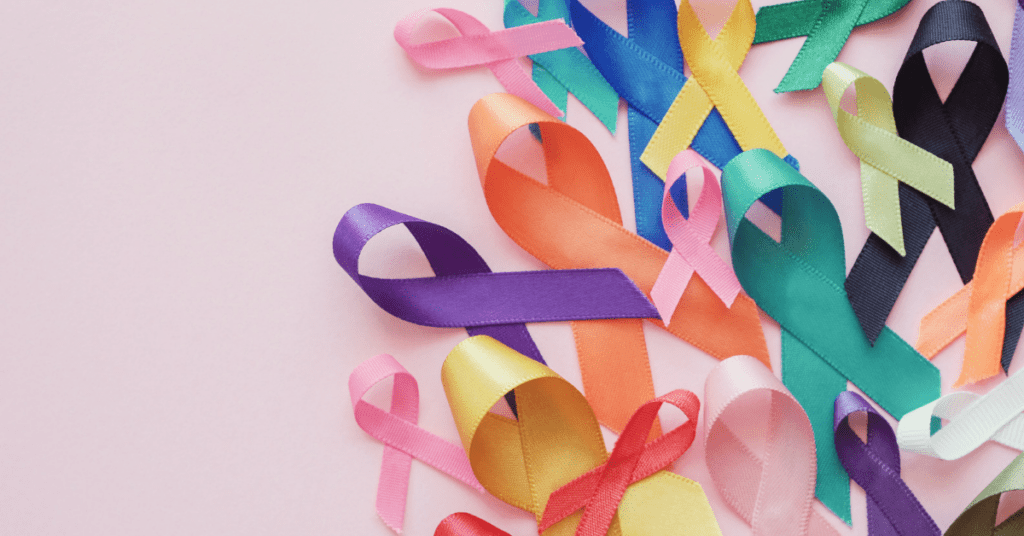We’ve all heard of cancer. It is perhaps the most famous disease across the globe. However, receiving a cancer diagnosis still comes with a lot of mystery and fear of the unknown.
Anyone can be diagnosed with cancer, regardless of sex, race, or creed. If you or a loved one has recently been diagnosed with cancer, you’re probably feeling overwhelmed and desperate for answers but unsure where to begin. You’re not alone! Millions of other people are in the same position and wondering the same things. To get started, here are seven frequently asked questions about cancer to help you on the journey to recovery.
1. What Are the Different Stages and Grades of Cancer?
Many cancers are categorized into different levels of severity. Identifying the stage or grade of cancer gives doctors and surgeons a guidepost to help identify treatments plans or clinical trial options. For example, if the cancer is localized to one area of the body, surgery or radiation therapy might be enough to remove it entirely and safely put the patient into remission. However, if the cancer has spread, treatment could require a more widespread option such as chemo or other therapies.
The Stages of Cancer
The stages of cancer describe how large the primary tumor is and how far cancer may or may not have spread in the patient’s body. As the stage number gets higher, the cancer is considered more aggressive.
Stage 0 – Indicates that abnormal cells are present, but they haven’t spread. Abnormal cells at this stage are not considered cancer yet, although they could become cancerous in the future. This stage is also called in-situ, which means “in place.”
Stage I – Indicates that the cancer is small and hasn’t spread.
Stage II – Indicates that the cancer has grown but hasn’t spread.
Stage III – Indicates that the cancer is more extensive and may have spread to the surrounding tissues and perhaps the lymph nodes.
Stage IV – The most aggressive stage, indicating that the cancer has spread to at least one other body organ. Also referred to as “secondary” or “metastatic” cancer.
The Grades of Cancer
The grade of a cancer diagnosis depends on how the cells appear under a microscope and how abnormal the cancer cells look compared to healthy, normal cells. The more abnormal their appearance, the higher the grade. As with stages, a higher grade number represents more aggressive cancer.
Grade I – The tumor cells and surrounding tissue look mainly healthy. These are well-differentiated low-grade tumors.
Grade II – The cells and tissue are somewhat abnormal. They are moderately differentiated intermediate-grade tumors.
Grade III – The cancer cells and tissue look abnormal. These high-grade tumors are poorly differentiated since they no longer have a clear architectural structure or pattern.
Grade IV – This is the highest grade. These cells typically grow and spread quickly. These undifferentiated cancers have the most abnormal-looking cells.
2. What Does It Mean to Have Aggressive Cancer?
In medicine, “aggressive” describes a tumor or disease that forms, grows, and spreads rapidly. This word also defines a treatment that is more severe or intense than usual.
3. What Cancers Are Considered the Most Deadly?
Different demographics are sometimes particularly vulnerable to certain forms of cancer. In this case, the particular cancers that affect men and women most severely are not all the same.
Five Most Dangerous Cancers in Men
- Lung & Bronchus – 72,500 deaths in 2019
- Prostate – 33,330 deaths in 2019
- Colon & Rectum – 28,630 deaths in 2019
- Pancreas – 24,640 deaths in 2019
- Liver & Intrahepatic Bile Duct – 20,020 deaths in 2019
Five Most Dangerous Cancers in Women
- Lung & Bronchus – 63,220 deaths in 2019
- Breast – 42,170 deaths in 2019
- Colon & Rectum – 25,570 deaths in 2019
- Pancreas – 22,410 deaths in 2019
- Ovary – 13,940 deaths in 2019
4. Should I Get a Second Opinion?
As with any diagnosis, whether for yourself, your pet, or even your car, it’s normal to wonder if another professional will have the same opinion. When the diagnosis is for something as life-changing as cancer, the pressure behind this question is all the more intense. Unfortunately, it won’t help to lay awake at night wondering. Instead, consulting another doctor could provide you with the confirmation you need to reconcile yourself to the diagnosis. Plus, they may have more information or different treatment options to help you feel more knowledgeable about your condition and the steps required to move forward.
5. How Do I Remember All This New Information?
Hearing a cancer diagnosis is scary and stressful, even at a low-risk level such as Stage I, Grade I. While your doctor is talking, you may find your mind wandering as you imagine how your life will change, having to tell your family, and what this all means going forward. When you’re in this mindset, it is hard to comprehend new and complex information.
Even if the doctor carefully explains everything, you may not hear or remember what they are saying. Here are a few ways to help with this part of the process.
- Take a trusted family member or friend with you to appointments. They will not only remember information that you may not, but they might also ask questions that you have not thought about yet.
- Bring a notebook and take notes.
- Ask your doctor if recording your conversations is an option. This can be helpful to use later as a point of reference.
6. Does Everyone with Cancer Lose Their Hair?
For many people, hair loss is symbolic of cancer and can come with its own stresses and fears. However, the actual disease of cancer is not the reason for hair loss, so this is not a side effect experienced by everyone with a cancer diagnosis. Whether or not you lose your hair depends on your treatment, the frequency of treatment, what medications you’re taking, and the dosage. Your doctor can tell you what to expect.
Chemotherapy is most associated with hair loss. These drugs are powerful medications that attack rapidly-growing cancer cells. They also attack other growing cells in your body, including those in your hair roots, meaning that you may lose hair all over your body and not just on your scalp.
The good news is that most of the time, hair loss from chemo is temporary. The average time for regrowth is three to six months after finishing treatment.
7. What Is Cancer Insurance (and How Can Aynjil Help)?
In South Africa, many insurance companies offer cancer insurance as part of a larger critical illness package. At Aynjil, we realized that this option is insufficient. Having dealt with cancer among our own family members and seeing firsthand how complex it can be, we created Aynjil insurance to better serve cancer patients and their families throughout their difficult cancer journey.
From the beginning, we have intended to develop an insurance product that has no fine print, no ambiguous clauses, and is priced as economically as possible. We are also constantly evolving our products and services to include mental health, alternative therapies, and new medical innovations. Around one in four South Africans are affected by cancer, so we want to ensure that our insurance policies always exceed the expectations of cancer patients and their families. At Aynjil, we also provide you with access to top-tier oncologists so that you can get a second opinion that gives you peace of mind.
And signing up with Aynjil is easy. Cover from Aynjil is designed for understandable customer care, using wording that is transparent and easy to understand. Plus, you can sign up online within four minutes by answering just six questions. We then give you a quote for your monthly premium and issue your policy immediately upon acceptance.
Our benefits are unique because we realize that cancer affects not just the patient but also their families, friends, and lifestyle. That’s why our comprehensive insurance solution supports physical, mental, and emotional care for you and your closest loved ones.
Visit our website to see how Aynjil insurance is different and why we are the best choice for you and your family on the journey to a successful recovery.
Marketing by Joseph Studios



